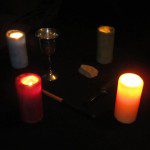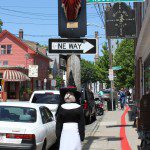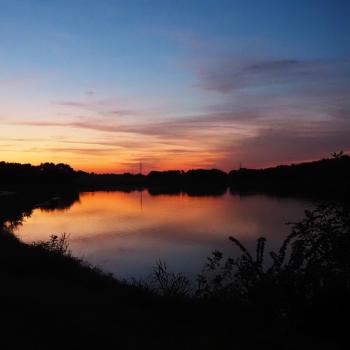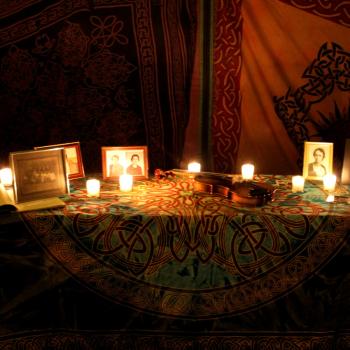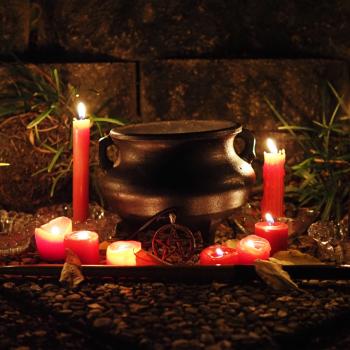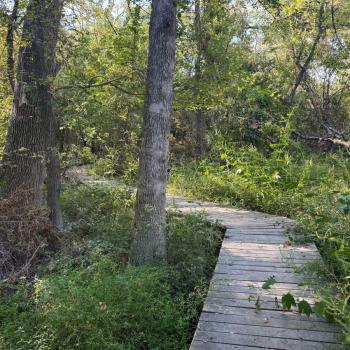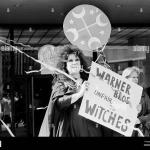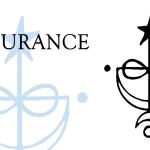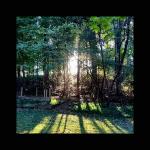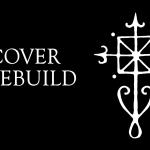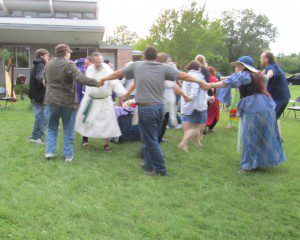 This is the final installment in my series on the centers of the Pagan movement and my commitments to them. The original post had three centers (Nature, the gods and the self); John Halstead added community after some discussion and I agree with him.
This is the final installment in my series on the centers of the Pagan movement and my commitments to them. The original post had three centers (Nature, the gods and the self); John Halstead added community after some discussion and I agree with him.
I got most of the way through composing a long post on the definition of community, the need for it, and how corporations are not communities any more than they’re people. While it was accurate, it read like a high school text book. I’m not going to inflict that on you – I threw it out and started over. What follows is the result.
Humans are social animals – we need community. We need families, neighborhoods, tribes, and nations. Communities provide companionship, support, and identity. Very few of us can live well on our own – solitary confinement is one of the most severe (and most abused) punishments in prisons.
Our religious lives are better lived in community too. Groups can raise more energy than individuals. But more important than energy is the encouragement and reinforcement and accountability that comes from being in community with other like-minded folks. It’s easy to get caught up in the busyness of life and neglect to study and practice when it’s just you involved. It’s much harder to slack off when you know there are others counting on you.
Much of the growth of Paganism has been among solitary practitioners, and there are a few Pagans who can do just fine on their own (Tommy Elf, I’m looking at you). Most of us can’t. Once I got serious about spiritual practice, it took right at a year before I hit the wall as a solitary. I had gone as far as I could go on my own. Once I found my way to Denton CUUPS and then to OBOD, my learning and growth picked up again.
A community is more than a collection of individuals. A community has its own history, its own culture, and its own values that are embodied by its members but that are not dependent on them. A community is a living entity – it can learn and grow and change. Like other living entities, it can also sicken and die.
I have an obligation to my community that extends beyond my obligation to my fellow members. I have an obligation to support it and to represent it honorably in the wider world. There have been more than a few times when I’ve gotten upset with grocery store lines and other ineffective public services, started to lose my temper, remembered I was wearing a Pagan t-shirt and bit my tongue. My frustrations may have been justified (or they may have been out of proportion – I’m not perfect) but I didn’t want strangers to associate “pretty Nature-worshipping t-shirt” with “can’t deal with life’s annoyances.”
Communities are human institutions, and like all human institutions they are imperfect. They are also subject to being hijacked by individuals for their own purposes. We’ve heard about the coven that’s all about the high priestess, just like we’ve heard about the church that’s all about the preacher… and the church that’s all about a handful of long-term members and what they want. Hold a leadership position – formal or informal, elected or voluntary or ad hoc – for long enough and it gets difficult to separate your needs from the needs of the community. But these are challenges for communities and those in them, not reasons to avoid them.
The main thing I want to say about community – and the main thing I pulled out of the essay I threw away – is that being in a community requires us to balance our needs with the needs of the community. Ask someone why they left a church and you’re likely to hear “it wasn’t meeting my needs.” Translate that into a Pagan setting and you’ll hear much the same. “Meeting your needs” is something you expect from a service provider: from the phone company or from an auto repair shop.
A community – in particular a religious community – doesn’t exist to meet your needs. It exists to fulfill its mission and continue its traditions. If you participate fully, many of your needs will be met. But you will also be challenged. Families challenge their children to learn and grow – in case you’ve forgotten, that’s not easy. Religious communities – good ones, anyway – challenge their members to learn and grow as well, to grow deeper in relationship with each other and with our gods, and to more fully embody the virtues of those gods.
Sometimes this depth comes through beautiful creations, ecstatic experiences, and fascinating discoveries. Sometimes it comes through useful projects and fulfilling service. And sometimes it comes through hard, dirty, sweaty, frustrating work. Avoiding the unpleasant parts of community marks you as a religious consumer instead of someone who is committed to the goals of the religious community.
If you truly have needs that your community isn’t addressing (such as advanced teaching or opportunities for service or leadership), by all means look for a different community. Or perhaps look for a complementary community, as I did in adding OBOD to CUUPS. But regardless of the approach you take, expect to contribute to the community and its ends.
There are Pagans whose community is the primary center of their practice. It’s a secondary center for me – Nature and the gods are my primary centers. But it is an important center – without the active, caring, and sometimes frustrating religious communities in which I live, work and worship, my practice and my life would be far less than they are.


